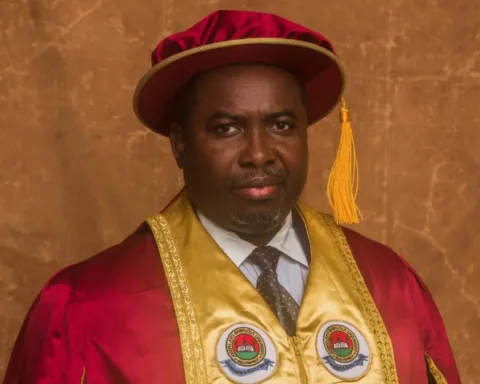By Tony Onyima, Ph.D.
In many Igbo communities, this is the season of Iwa Ji or Iri Ji—the traditional New Yam Festival. Within Igbo cosmology, the yam is a symbol of life, sustenance, wealth, and cultural identity. Long revered as the “king of crops,” yam represents the foundation of existence and the rhythm of the agricultural year. The annual New Yam Festival, celebrated between August and October, marks the end of the farming season and the beginning of the harvest, affirming the crop’s enduring spiritual and social significance.
Yam’s importance is rooted in history. For centuries, it served as the staple food that ensured the survival of Igbo communities. Anthropologist M. A. Onwuejeogwu observed that yam transcends its value as mere sustenance, playing a pivotal role in rites of passage, communal ceremonies, and economic exchanges. In traditional Igbo society, a man’s success in yam cultivation reflected his wealth, social standing, and industry. Large yam barns were once the ultimate markers of prosperity and masculine achievement.
Chinua Achebe captured this ethos in Things Fall Apart (1958), noting that “yams, the king of crops, were a man’s crop.” Beyond its nutritional value, yams embodied strength, perseverance, and the dignity of labour. A bountiful harvest elevated a man’s reputation, while a poor yield could diminish his standing in the community.
The deeply agrarian and cyclical Igbo worldview invests yams with spiritual and religious dimensions. Yams’ planting, nurturing, harvesting, and storage mirror the natural cycles of birth, growth, death, and rebirth that define Igbo beliefs about the universe. Yams are considered gifts from the deities, particularly Ala (or Ani), the Earth goddess, who blesses the soil with fertility. Before harvesting, families and communities offer prayers and sacrifices to Ala and other deities to secure abundance and avert famine.
The New Yam Festival is the culmination of these cosmological beliefs. It is a rite of thanksgiving, during which the first harvested yams are offered to the gods and ancestors before any community member may partake. Eating the new yams without this ritual is deemed sacrilegious—a breach that could invite divine displeasure and threaten future harvests.
The festival is also a celebration of renewal. In many communities, the head of the household or the community leader (Igwe or Eze) breaks the first yam, accompanied by libations and prayers. As historian Nwokeji (2001) explains, this act symbolises the renewal of the people’s covenant with the earth and the spiritual forces that govern fertility. The communal feast that follows embodies unity, peace, and prosperity. Sharing yams reinforces bonds of kinship and signals a collective readiness to embrace the new season in harmony. It is a time of reconciliation, when old grievances are set aside in favour of communal well-being.
Economically, yam remains a cornerstone of traditional Igbo life. Its cultivation demands skill, strength, and collaboration, often requiring families and entire villages to work together. The distribution of yams during festivals and ceremonies strengthens social ties, reinforces hierarchies, and cements political alliances. Chiefs and elders with overflowing yam barns enhance their influence by sharing their surplus, demonstrating generosity and authority.
Historically, yams also functioned as a medium of exchange. In pre-colonial times, it was used in barter and even served as part of the bride price during marriage ceremonies. This practice underscores its role in family formation and social continuity.
Within Igbo cosmology, therefore, yams are far more than a crop. It embodies life, prosperity, and the eternal cycles of nature. The New Yam Festival celebrates this profound connection between the land, the deities, and the community, affirming values of gratitude, unity, and renewal. As the “king of crops,” yam remains a powerful emblem of Igbo identity—a living link to the ancestors and a reminder of the resilience and communal spirit that define the Igbo worldview.
Dr. Onyima, a culture enthusiast, is a former Anambra State Commissioner for Information, Culture and Tourism.



























